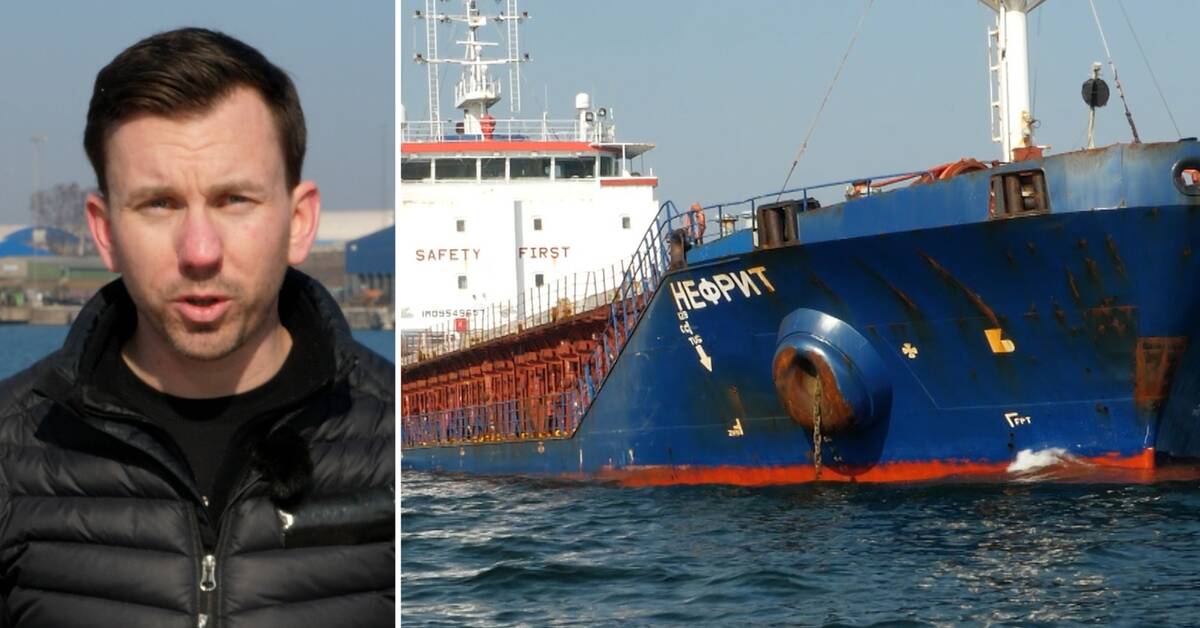Early on Tuesday morning, the Russian ship Nephrite appeared in the Oxelösund archipelago, carrying several thousand tonnes of aluminum.
- It will be allowed to enter our port, says Douglas Heilborn, CEO of Oxelösund port.
Despite otherwise harsh sanctions against Russia, there is still no ban that stops ships from entering Swedish ports.
- It will be a dilemma for us.
We take support in the rules and regulations that exist and work at the same time to bring about a change in them, says Douglas Heilborn.
A survey carried out by SVT shows that on Tuesday afternoon there were about 50 ships in the Baltic Sea that came from Russian ports.
Some of them were on their way to Sweden.
Other countries have acted
Several countries have ported Russian ships from their ports and within the EU they are now trying to agree on new sanctions ahead of the EU summit to be held later this week.
Among other things, Denmark has pressed for a ship stop to be part of this.
But it is still far from clear if that will be the case.
The Swedish government has previously emphasized that it is precisely within the EU that such a decision should be made.
- It is important that it is not up to each individual Member State.
The EU must have a common attitude towards Russia, Infrastructure Minister Tomas Eneroth (S) has told SVT.
Risks being a blow in the air
However, the Swedish Port Workers' Union has already decided to introduce a blockade against ships that have connections to Russia.
From March 28, their members will not handle the goods from these vessels.
The other major union in the port industry, the Transport Workers' Union, held a board meeting on Tuesday where the issue was discussed.
At present, they believe that the issue is best decided jointly between the EU countries.
- The blockade risks being a blow in the air from our perspective, says union president Tommy Wreeth.
The port of Oxelösund is in the same line, those responsible want to see a ban but believe that it should be done jointly between the EU countries.
- We want to see a stop.
I think it needs to happen quickly and as quickly as possible, says Douglas Heilborn.

